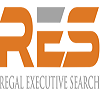What does a Forensic Accountant do?
1 Answer(s)
Top Answer
Forensic Accountants are not all that different from your typical finance-whiz Accountants. You'll find them both hunched over (or ergonomically seated) while poring over the latest spreadsheet or financial report, collecting and analyzing financial data to find discrepancies. They are the last defense between a company and its bottom line.
However, the difference between them lies in who they work for and the fact that, for Forensic Accountants, a crime or fraudulent activity is prompting the audits of financial records. The process is methodical, meaning that all interviews and statements, reports, and other data are collected incrementally, allowing Forensic Accountants to consider their findings carefully. This process takes exceptional patience and organization, as gathering data is only as simple as building a collection. However, it doesn't always denote that the collector knows what to do with it, although that does not apply for this branch of accounting.
The job has an investigative element, at least from an administrative perspective, so documentation and reports are prepped based on data findings, and evidence is also prepared for use in court proceedings. Information should be extraordinarily detailed and fact-checked before appearing in court not to fall short of proving fraudulent activity. Forensic Accountants may also need to provide their expert testimony in court.
Roles and responsibilities of a Forensic Accountant
Like your typical run-of-the-mill Accountant, Forensic Accountants are responsible for maintaining budgets and financial records. However, the latter is more concerned with fraud and embezzlement crimes within a company.
Here's a non-exhaustive list of everyday tasks Forensic Accountants are required to complete:
However, the difference between them lies in who they work for and the fact that, for Forensic Accountants, a crime or fraudulent activity is prompting the audits of financial records. The process is methodical, meaning that all interviews and statements, reports, and other data are collected incrementally, allowing Forensic Accountants to consider their findings carefully. This process takes exceptional patience and organization, as gathering data is only as simple as building a collection. However, it doesn't always denote that the collector knows what to do with it, although that does not apply for this branch of accounting.
The job has an investigative element, at least from an administrative perspective, so documentation and reports are prepped based on data findings, and evidence is also prepared for use in court proceedings. Information should be extraordinarily detailed and fact-checked before appearing in court not to fall short of proving fraudulent activity. Forensic Accountants may also need to provide their expert testimony in court.
Roles and responsibilities of a Forensic Accountant
Like your typical run-of-the-mill Accountant, Forensic Accountants are responsible for maintaining budgets and financial records. However, the latter is more concerned with fraud and embezzlement crimes within a company.
Here's a non-exhaustive list of everyday tasks Forensic Accountants are required to complete:
- Examine the company's accounts and financial data
- Analyze the resources and liabilities of a company
- Ensure financial records are accurate and consistent
- Document financial reports
- Review clients' financial books
- Analyze profits and expenses
- Write detailed reports about the financial status of their clients.
- Manage financial records, systems, and budgets.
- Administer financial audits and performing interviews to collect and verify the information.
- Analyze data from financial records, procedures, and budgets
- Review financial books
- Discover discrepancies
- Identify important information
- Carry out forensic investigations
- Trace funds to their origins
- Identify company assets
- Detect irregularities.
- Write forensic reports to be used in court:
- Prepare analytical data
- Analyze profits and expenses, spotting any discrepancies
- Present findings as evidence in court.
- Prevent possible fraud cases by balancing a company's books.
- Attend court proceedings.
Related Jobs





